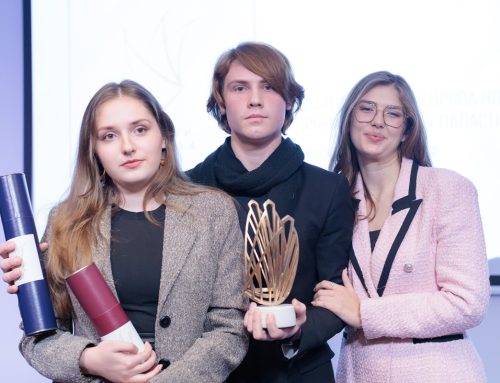Head of the EU Delegation to Serbia Michael Davenport hosted a reception for Serbian participants that have so far been part of the EU Visitors Programme (EUVP), 32 of them since 2002, including Head of Serbian negotiating team for EU accession Tanja Miščević, Minister without portfolio in charge with European integration Jadranka Joksimović, as well as political, civil sector, and media figures.
“For me gathering people who have been engaged in European integration business as long as some of you have is a real privilege,”, said Davenport addressing the guests. The fact that in the Serbian government there are people of such dedication and experience towards EU integrations shows that “through the EU Visitors programme we really did invest very well indeed,” Davenport said, adding that these gathering will continue in the future as well.
The programme was established in 1974 and originally designed as an invitation programme for US citizens only; over the time the programme expanded to include other non-EU members and currently covers 80 countries worldwide.
EUVP is aimed to enable young current or emerging leaders in government, politics, the media and other key fields from non-member countries to visit the Institutions of the European Union, as guests of the European Parliament and the European Commission.
The EUVP Secretariat in Brussels organises an individually-tailored 5 to 8-working day programme for each of the participants, which offers them the opportunity to gain, through first-hand experience, a better understanding of the European Union.
Tanja Miščević took part in EUVP in 2004, only four months before she was appointed Director of the European integration office. “EUVP represents the most straightforward method of acquainting with the procedures. It all starts from there; from that straightforward acquaintance my EU story has begun, and of course, it doesn’t end yet,” says Miščević. She emphasised the quality of the programme, and the fact that she had had an opportunity to speak not only to people of the Commission, but also to those from the Parliament and civil sector.
Manuela Alić, member of the Roma women network from Pirot who visited Brussels last year within the EUVP, considers her participation has helped increasing the visibility of Roma women, besides from helping her make contacts of major importance for Roma people and institutions. “For me, it was a considerable success: the fact that one Roma woman went to Brussels, then the issues of Roma women became more visible, and society finally began addressing them,” she said.
During her visit to Brussels in 2012, Founder and regional coordinator of the BELLS movement Aleksandra Knez Milojković toured the Environment General Directorate, as well as the one in charge with rural development. “I had a chance to meet the Green Party MPs, and visit the Belgium Parliament. To domestic MPs and civil sector colleagues I have passed rather useful information regarding environment development and sustainability,” said Knez Milojković.
Journalist and editor at Prva TV Zoran Baranac said the EUVP has enabled him “to see a different perspective of EU institutions’ functioning.” Apart from making contacts that have helped him a lot in his later work, Baranac said “exploring the system through this programme has allowed me to explain to my journalists their way around when visiting Brussels, reporting from Brussels, or covering EU-related events here in Belgrade.”



